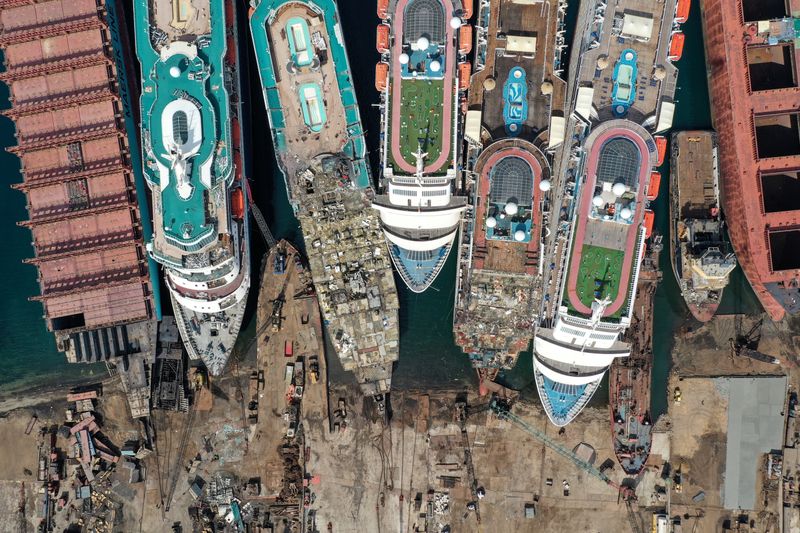By David Shepardson
WASHINGTON (Reuters) - The cruise industry will extend its suspension of U.S. cruise operations through Dec. 31, an industry group that represents 95% of global ocean-going cruise capacity said on Tuesday.
The Cruise Lines International Association (CLIA) said its members will use the remainder of the year to prepare for the implementation of measures to address COVID-19 safety issues.
The Centers for Disease Control and Prevention on Friday issued a framework for a phased resumption of cruise ship operations after a no-sail order issued in March in response to the coronavirus pandemic was to expire on Saturday. [nL1N2HL29F]
Extending the suspension "will provide additional time to align the industry’s extensive preparation of health protocols with the implementation requirements under the CDC’s Framework for Conditional Sailing and Initial Phase COVID-19 Testing Requirements for Protection of Crew," CLIA said.
The CDC said it was requiring testing and additional safeguards for crew members. A U.S. House of Representatives committee is investigating whether the White House in September blocked the CDC from extending the no-sail order through mid-February.
The no-sail order came amid a rising number of coronavirus cases on cruise ships. On Tuesday, shares of major cruise lines Carnival Corp (N:CCL), Norwegian Cruise Line (N:NCLH) and Royal Caribbean Cruises (N:RCL) closed up modestly.
"Subsequent phases will include simulated voyages to test cruise ship operators' ability to mitigate COVID-19 risk, certification for ships that meet specific requirements and a phased return to cruise ship passenger operations," the CDC said.
The industry has committed to "100% testing for passengers and crew prior to boarding, mask-wearing, physical distancing requirements, highly controlled shore excursions" and other precautions.
The CDC said through Sept. 28, data showed "a total of 3,689 confirmed cases of COVID-19 or COVID-like illness cases on cruise ships and 41 deaths."

The cruise industry generates over $53 billion in annual economic activity and supports 421,000 American jobs spanning almost every sector. CLIA estimates the suspension has resulted in a loss of $25 billion in economic activity and over 164,000 American jobs.